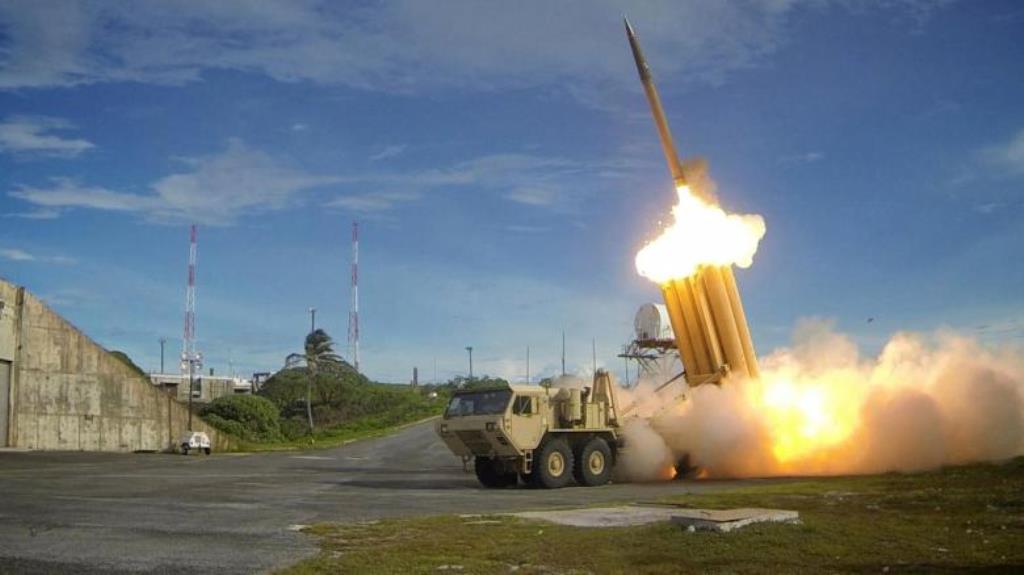Seoul – Only one day after North Korea tested its ballistic missiles, the United States started to deploy the first elements of its advanced anti-missile defense system (THAAD) in South Korea on Tuesday.
The four ballistic missiles fired by North Korea landed in the sea off Japan’s northwest, angering South Korea and Japan.
US deployment of THAAD is likely to deepen the conflict between South Korea and China. Beijing strongly opposed the deployment of the system saying it destroys the regional security balance.
White House spokesman Sean Spicer told reporters that North Korea’s launching of four ballistic missiles is consistent with its history of “provocative behavior” and the United States stands with its allies against the threat.
“The Trump administration is taking steps to enhance our ability to defend against North Korea’s ballistic missiles such as through the deployment of a THAAD battery to South Korea,” Spicer said.
Tokyo and Seoul have requested a United Nations Security Council meeting on the latest incidents, which will likely be scheduled for Wednesday.
South Korea said the missiles were unlikely to have been intercontinental ballistic missiles which can reach the US. They flew on average 1,000 km and reached an altitude of 260 km.
Japan’s Defense Minister Tomomi Inada said that some missiles landed as close as 300 km from Japan’s northwest coast.
South Korean officials said that the four North Korean missiles appeared to be an upgraded version of the Scud type.
US President Donald Trump and Japanese Prime Minister Shinzo Abe discussed the launches by the nuclear-armed North during a phone call on Tuesday.
“Japan and the US confirmed that the latest North Korean missile launches were clearly against UN resolutions and a clear provocation against the regional and international community. North Korea’s threat has entered a new phase,” Abe told reporters according to Reuters.
Office of South Korea’s acting President Hwang Kyo-ahn also announced that the acting president and Trump discussed the North’s missile launches.
US Pacific Commander Admiral Harry Harris issued a statement in which he said that the continued provocative actions by North Korea, including the launch of multiple missiles, confirm the prudence of the alliance decision last year to deploy THAAD to South Korea.
Chinese Foreign Ministry spokesman Geng Shuang repeated on Tuesday China’s opposition to THAAD, saying the country would take the steps necessary to protect its security interests.
“The consequences of this are on the shoulders of the United States and South Korea. We again strongly urge the relevant sides to stop the deployment process and not keep going down the wrong path,” Shuang stressed.
North Korean state news agencies reported that its leader Kim Jong Un personally supervised the missile launches.
North Korea continues to execute a series of nuclear and missile experiments in a blatant defiance for UN’s resolutions.
It issued a statement which said: “In the hearts of artillerymen … there was burning desire to mercilessly retaliate against the warmongers going ahead with their joint war exercises.”
The statement added that Kim ordered the Korean People’s Army’s Strategic Force “to keep highly alert as required by the grim situation in which an actual war may break out any time, and get fully ready to promptly move, take positions and strike so that it can open fire to annihilate the enemies.”
China, North Korea’s primary ally, announced recently it will suspend all coal imports from North Korea until the end of 2017.
Choi Kang, an analyst at the Seoul-based Asan Institute for Policy Studies told AFP that Trump could take a much more “hardline” stance than the Obama administration, potentially reintroducing nuclear weapons to the South.
South Korea’s Lotte Group closed nearly two dozen retail stores on Tuesday after several requests for a nation-wide boycott.
Lotte spokesperson said that the Chinese authorities closed 39 out of the 99 stores owned by the group, claiming there were risks of fire.
